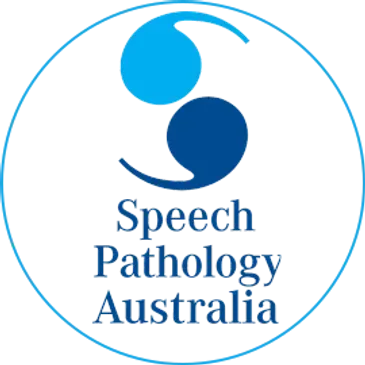
Answer: it appears not.
Recently, the NDIS was unable to provide any evidential basis for having generic speech or occupational therapy listed as a support for autistic children - see https://a4.org.au/node/2674
There are various other examples where evidence supporting generic speech therapy is missing. These include research reviews for Australian Government agencies - in particular
- Prior, M., Roberts, J. M.A., Rodger, S., Williams, K. & Sutherland, R. (2011). A review of the research to identify the most effective models of practice in early intervention of children with autism spectrum disorders. Australian Government Department of Families, Housing, Community Services and Indigenous Affairs, Australia. https://a4.org.au/sites/default/files/2012ASfARreport.doc with its associated booklet https://a4.org.au/sites/default/files/2012ASfARbooklet.pdf
- Roberts & Williams (2016) Autism spectrum disorder: Evidence-based/evidence-informed good practice for supports provided to preschool children, their families and carers prepared for the NDIS.
- Autism CRC https://www.autismcrc.com.au/interventions-evidence
Perhaps one of the most notable examples of limited or missing evidence is Evidence Based Speech Pathology Practice for Individuals with Autism Spectrum Disorder prepared for Speech Pathology Australia. This 40 page report, available below or from this link on Griffith University's website, has a very short section to describe the evidence. It says only:
8.3 Evaluating the Evidence for Interventions
Currently, the state of intervention research in the field of ASD is that (a) there are many interventions available with different levels of evidence including some unsupported practices; (b) amongst interventions that demonstrate positive intervention outcomes at the group level in well-controlled studies, there is still substantial individual variability; (c) there is currently no best intervention for all individuals with ASD; and (d) intervention research has predominantly focused on young children with less attention to supporting adolescents and adults with ASD. There is evidence that children with ASD may benefit from early, intensive, family-based intervention programs, regardless of the theoretical perspective adopted, as long as the intervention is appropriate to the child’s strengths and needs and take the family circumstances into account (Roberts & Prior, 2006).
Speech pathologists must critically appraise the research evidence when selecting interventions, and consider other factors (e.g., clinical insights and experience, contextual factors, and client and caregiver preferences and priorities) within the EBP framework for clinical decision making (Dollaghan, 2007). The Association recommends that speech pathologist make use of the range of research resources currently available to support evidence-based decision making, including primary sources of research evidence (i.e., individual journal articles), research reviews (e.g., National Autism Center, 2015), EBP resources (e.g., ASHA Evidence Maps), and searchable repositories of critically appraised research (e.g., speechBITE). Given that speech pathologists will rarely be able to replicate interventions described in research exactly, due to contextual factors and heterogeneity within the spectrum of individuals with ASD, it is imperative that they engage in systematic, rigorous evaluation of intervention progress and outcomes for each client, irrespective of the interventions they use, as the basis for evidence-based clinical decision making.
While the report title claims it offers an evidence base for speech therapy practice for autistic children, it fails to deliver on its promise.
Notably, while it references Roberts & Prior, 2006 (which is no longer available from government websites), it does not reference the Prior, Roberts, et. al. (2011) report above. This may be because the list of evidence-based therapy for autistic children does not include generic speech pathology.
The Speech Pathology Australia document cited above also makes the notable claims that:
The Association affirms that speech pathologists are the only professionals with the skills and knowledge required to comprehensively address the core communication speech, language, and social-pragmatic impairments associated with ASD.
and
8.1 Statement of role of speech pathologist
Speech pathologists are the only professionals with the skills and knowledge required to comprehensively address the speech, language, and pragmatic impairments (and associated disability) experienced by individuals with ASD.
The use of the word "only" in these statements is not consistent with the research that shows behavioural clinicians have a major role in early investment* for autistic children. Section 8.2 of the report references various intervestments other than speech therapy that address social and communication "differences" for autistic children.
The other problem is that very few speech therapists in Australia are trained to "comprehensively address" language and communication dysfunction or "difference" in autistic children.
Finally,

The prospect of treatment-as-usual (TAU - low intensity speech & occupational therapies) functioning as a placebo in autism has had relatively little research. Nor is it clear that this does not account for parent-delivered/mediated therapies/intvestments being less effective or perceived that way.
* The term "investment" is used above (except in quotations) - replacing "intervention" - as more appropriate language to describe broadly the purpose and outcomes of evidence-based clinical activities.
| Attachment | Size |
|---|---|
| Trembath268464Published.pdf (962.66 KB) | 962.66 KB |